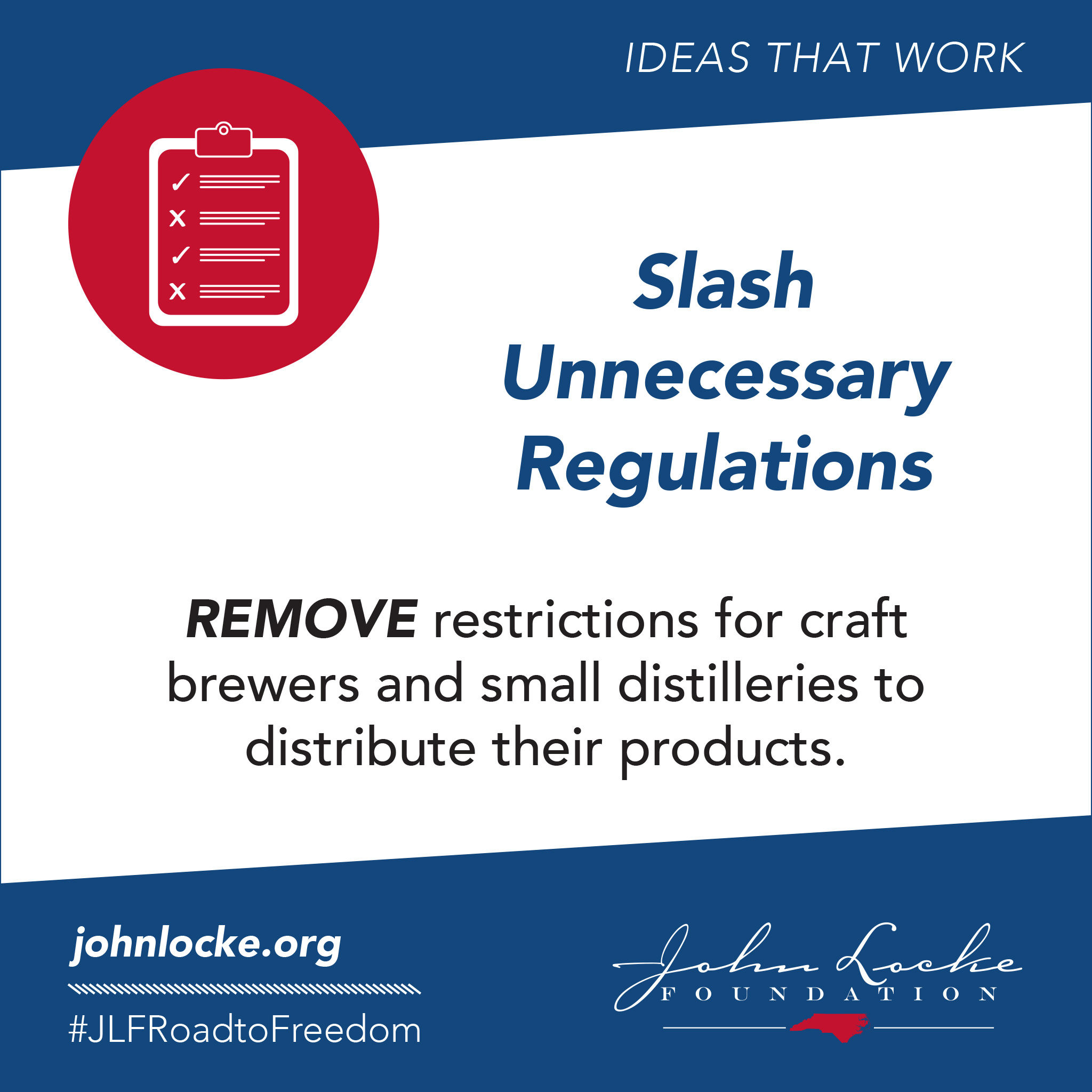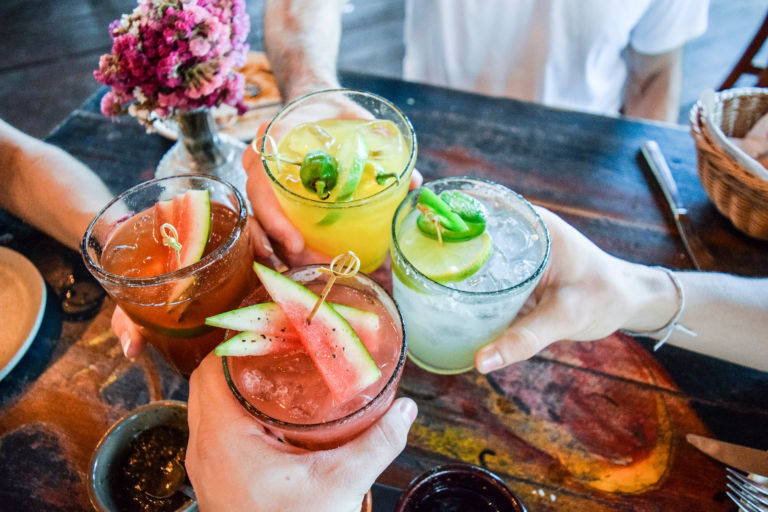Carolina Journal reports on the progress of Senate Bill 290, which has passed both chambers of the legislature and now goes to the governor to be signed into law:
The measure has undergone numerous revisions, as other bills were incorporated in, including H.B. 536, sponsored by Rep. Chuck McGrady, R-Henderson. Sen. Rick Gunn, R-Alamance, is a primary sponsor of S.B. 290, which will allow brewers to offer tastings at farmers markets and removes a limitation on sales at the state’s craft distilleries. The bill allows restaurants and other venues to sell up to two drinks per customer at any one time, and would allow liquor tastings at state ABC stores, from 1 to 7 p.m., for three hours, with no more than three tastings per week.
S.B. 290 would allow N.C. distilleries to sell malt beverages and unfortified and fortified wine, as well mixed beverages. The bill would allow distillers to, much like ABC stores, sell to consumers without facing the current five-bottle-per-person annual restriction.
Although legislation moving the state toward privatization of liquor sales has proved unsuccessful, H.B. 536 restricts the formation of new ABC boards, of which the state has about 170.
Relaxing the state’s tight restrictions against its craft distilleries could have quick returns, as I discussed here:
As breweries and wineries have blossomed already under a license system, North Carolina’s distillery industry is poised for growth under a less restrictive system.
More jobs, more retail outlets, and more distilleries would lead to faster economic growth than could be expected under the ABC system’s strict control. Distilleries rely almost exclusively on local consumers, so building relationships with their neighbors is very important to their survival.
Distilleries also hold the potential for local tourism, especially if the state relaxes many of its restrictions against them. For these reasons, changes that help boost distilleries also hold the potential to boost community pride.
This bill would free up craft distilleries from burdensome rules that many of their peers in other states don’t have to deal with. This could be particularly helpful for North Carolina’s distilleries because distilleries are so dependent upon sales to local consumers.
Unless it’s a very large distillery, 92 percent of a distillery’s sales are to consumers in its home state. Distilleries rely on sales to friends and neighbors. So it’s good to open North Carolina distilleries to more sales and business with their vital, natural customer base.



